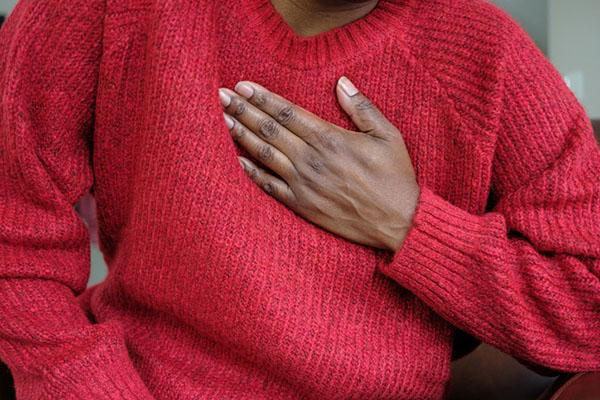
New thinking about plaque in arteries that feed the brain

Want to prevent shifting teeth? Maybe you need retainers

New evidence that polyphenol-rich foods help the heart

What you need to know about the new dietary guidelines

Food that’s healthier for people and planet can be cheaper, too

What are somatic workouts?

How to curb your stress eating

8 simple ways to reduce ultra-processed foods in your diet

How to spot Parkinson’s disease symptoms

Heart failure symptoms in women: How they’re different
Heart Failure Archive
Articles
Reversing prediabetes may slash heart disease risk by half
People with prediabetes who successfully lower their blood sugar back to normal levels may cut their future risk of death due to heart disease by half, according to a 2025 study.
Heart failure symptoms in women: How they’re different
After menopause, women develop heart failure at rates similar to men. But women tend to develop heart failure with preserved ejection fraction, which leads to more frequent hospitalizations. Women also have different risk factors for heart failure than men.
Nighttime light exposure linked to heart disease
Higher exposure to light at night between 12:30 a.m. and 6 a.m. is linked to an increased risk of cardiovascular problems including coronary artery disease, stroke, atrial fibrillation, heart attack, and heart failure.
Nearly everyone has at least one risk factor before a heart attack, heart failure, or stroke
A 2025 study suggests that more than 99% of people who have a first-time heart attack, stroke, or heart failure have at least one of four risk factors: unhealthy blood pressure, cholesterol, or blood sugar levels, or past or present smoking.
Stand up for your heart
A 2025 study found that people who are sedentary for 10.6 hours per day or more may face a higher risk of heart failure or dying from heart disease—even if they follow recommended exercise guidelines. Uninterrupted sitting has harmful effects on metabolism, leading the body to burn fewer calories and less fat. It can also cause blood sugar levels to rise, triggering the release of insulin, the hormone that regulates blood sugar. Over time, sedentary habits cause the body to become less sensitive to insulin. The resulting insulin resistance promotes inflammation, a key player in the buildup of fatty plaque inside arteries.
Feeling the heat
Older adults are especially vulnerable to heat-related ailments like heat exhaustion and heatstroke. The primary reason is biological, as aging bodies can't maintain a steady internal body temperature when external conditions change. Heart conditions and heart medications can add to the problem. Older adults can protect themselves from heat ailments by taking standard precautions during hot weather and recognizing the early symptoms of ailments so they can seek immediate treatment.
Are you at risk for heart failure?
Evidence published in 2025 suggests that 15 million people in the United States are at risk for developing heart failure, a condition in which the heart doesn't pump well enough to meet the body's needs. The estimate was determined with improved tools to calculate risk, called the PREVENT equations. Like previous methods, the equations consider age, blood pressure, cholesterol levels, and smoking history. But the PREVENT equations remove race (an unreliable predictor) and add additional aspects of health.
Cigar, pipe, and smokeless tobacco use linked to distinct heart risks
Using tobacco in cigars, pipes, or smokeless products such as snuff is associated with distinct heart-related risks.
How to avoid heart failure
New research has found that Americans are now dying from heart failure at a higher rate than 25 years ago, making prevention more important than ever. The best strategy to lower one's risk from heart failure is to address its top underlying contributors: high blood pressure, abnormal blood lipid levels, and weight gain. Addressing these risk factors can also protect against developing coronary artery disease and diabetes, two of the main medical conditions that cause heart failure.

New thinking about plaque in arteries that feed the brain

Want to prevent shifting teeth? Maybe you need retainers

New evidence that polyphenol-rich foods help the heart

What you need to know about the new dietary guidelines

Food that’s healthier for people and planet can be cheaper, too

What are somatic workouts?

How to curb your stress eating

8 simple ways to reduce ultra-processed foods in your diet

How to spot Parkinson’s disease symptoms

Heart failure symptoms in women: How they’re different
Free Healthbeat Signup
Get the latest in health news delivered to your inbox!
Sign Up











